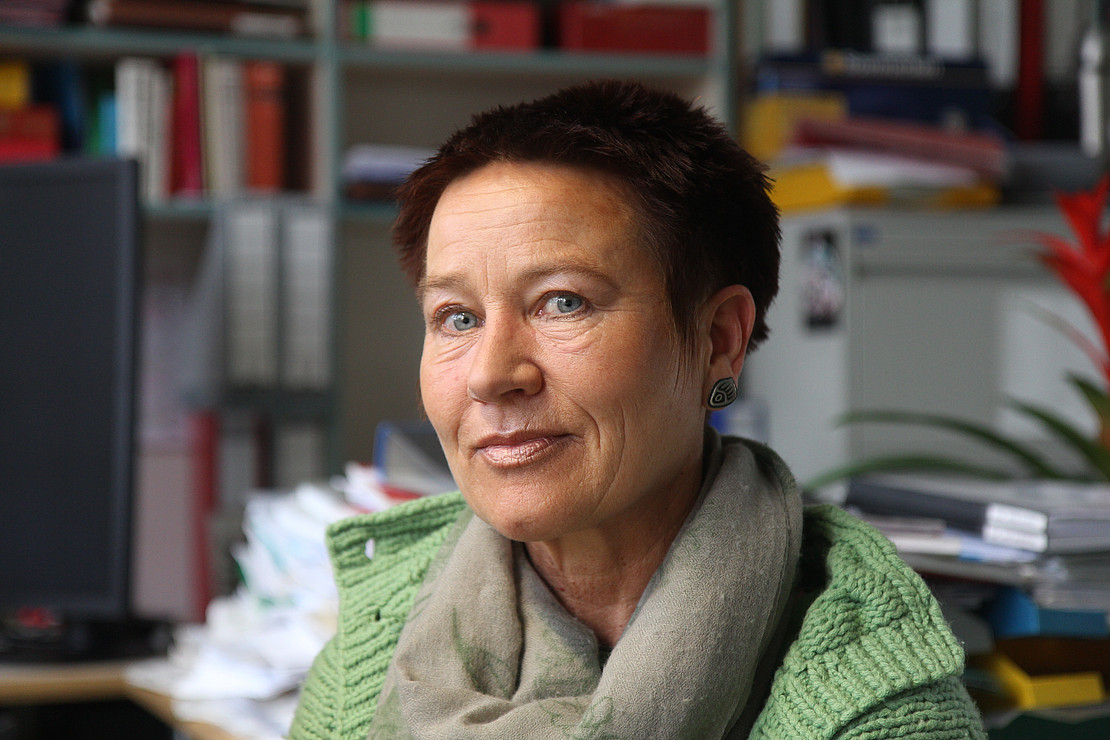This page contains automatically translated content.
Inner clocks: Researcher from Kassel applies for DFG Research Training Group

Circadian clocks with a period length of about 24 h control various rhythms in physiology and behavior in our body, embedded in the 24 h day of our environment. By perceiving light with our eyes, we synchronize our circadian pacemaker center in the brain with the day-night rhythm. The many internal clocks distributed throughout the body must then synchronize with each other to generate a uniform body time and then stably couple this to rhythms in the environment. Fatigue, hunger, performance, pain sensitivity, cell repair - everything runs synchronized at defined times of day in a 24-hour cycle. In addition, there are other clocks in the organism, for example hormone glands, which tick in a monthly or annual rhythm, or in cycles shorter than a day.
In the new DFG Research Training Group, the researchers will in particular investigate the synchronization ofmultiscale clocks. In this context, the cell membrane plays a very important role as a clock with different "hands", from milliseconds to hours and days, in the synchronization of different temporal cycles. Indeed, chemical and electrical processes can be measured via the membrane and converted into information that the brain can process. In the coordination of various biological rhythms in the organism, the cell membrane and its communication with genetic clocks in the cell nucleus play a very important, but not yet sufficiently researched role.
The DFG announced today (Nov. 8) that it will fund the Research Training Group "Biological Clocks on Multiple Time Scales" for four and a half years. The research training group comprises 12 positions for doctoral students and one post-doctoral position. In addition to Stengl's department of animal physiology/neuroethology, a number of other departments at the University of Kassel from various natural sciences, engineering and mathematics are involved.
The results of the research group will help to understand how not only individual living organisms synchronize with their environment, but ultimately how entire ecological systems synchronize with each other and with their environment. The findings will point beyond biology: "An internal clock, or in other words an oscillator, is not just an archetype for rhythmic behavior. In physics, an oscillator is also a cornerstone of the theories that have been developed to describe time. Moreover, oscillators, with their characteristic properties, create the foundations for self-organization, autonomy, equilibrium, and sustainability. Consequently, understanding the fundamental properties of interacting fast and slow clocks/oscillators that create time is not only of great importance for biologists," Stengl said, adding that this knowledge would also be very important for engineers and others such as environmentalists.
For more than 20 years, Monika Stengl, an internationally recognized scientist, and her research group have made significant contributions to chronobiology and also to olfaction. The Vice President of the University of Kassel responsible for research, Prof. Dr. Michael Wachendorf, congratulated her and her colleagues on their success. "In this college, she passes on her knowledge to young researchers," Wachendorf said. With the expertise of other outstanding colleagues from the natural sciences and mathematics, the project can also make highly interesting connections to neighboring disciplines, he added.
Contact:
Prof. Dr. Monika Stengl
University of Kassel
Department of Animal Physiology
E-mail: stengl[at]uni-kassel[dot]de